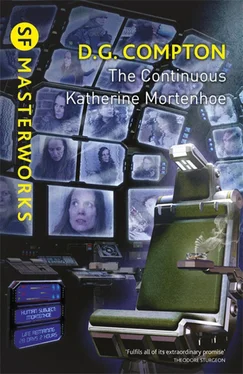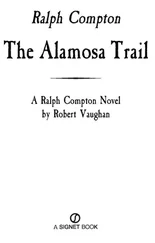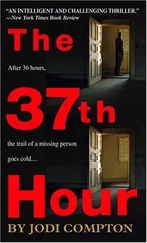Gerald was kind: a big, impressive-feeling man. Even from the beginning he hadn’t really been against me, just waiting for a lead from Katherine. I might have been her old man of the sea for all he knew. For all I knew, maybe I was. But she gave no sign, so I chose to think not.
Not that she was one for signs. After all, she was dying — and I mean there, in that garden, dying — and she gave no sign of that either. At least, not to Gerald who might be expected to believe her. But I knew better. After her last rigor down by the van she’d been… different. Her breathing was different. There was no rhythm to it, to her walking, to her voice even. No continuity. It was as if she had to discover and then rediscover each necessary act as she went along. And the effort this required grew progressively greater. She was past rigor. She was past rigor, and paralysis, and coordination loss, and sweating, and double vision, and… I stopped myself. She was dying.
I knew what that meant. Of course I knew, every thinking person knew, what that meant. And boy, was I a thinking person. It meant ashes to ashes. It meant dust to dust. If the women don’t get you the whiskey must.
I had no idea what it meant.
‘…Perhaps in a way things were made too easy,’ she was saying, ‘by us not having any children.’
‘How could we have had children? You seemed to have none of the qualities a mother needed.’
Was it some kind of truth game they were playing, or had they always been so honest with each other? I scooped my salad and drank my wine.
‘You didn’t know everything about me, Gerald. But perhaps you were right about my qualities of motherhood.’
‘You have them now, Kath.’
Their honesty made this a genuine compliment. Neither was it, in spite of her present situation, at all monstrous, just a nice, genuine compliment. ‘I hope you’re right, Gerald. It’s about time.’ Neither of them spoke for a while. Then, ‘You know, I’m glad you never remarried, Gerald.’
‘What difference would that have made?’
‘I was thinking of my father. He remarried all the time.’
‘How very Freudian of you… Was that why you left me? Because you thought you’d married your father and then found you hadn’t?’
This was too much, even for her. ‘It was you who left me,’ she said.
‘Under the meaning of the Act, perhaps. But you’d left already, a long time before that.’
I heard her chair creak. I’d wondered at first if they found me, on account of my blindness, either more intrusive or less. I needn’t have worried. They had more important things to think about. ‘You always wanted to change me, Gerald. I wasn’t ready to be changed.’
‘In those days I was always in too much of a hurry.’
‘Please don’t be smug.’ The concession wasn’t enough. ‘Just look at me. There’s a mechanism here, very much a mechanism, and it’s very much running down. Even you would be hard put to it to find much more.’
‘So you’d say you’ve not changed. You’d say you’re here just because you’re here.’
‘Not the clever schoolmaster stuff, Gerald. Not the Socratic method.’
He sounded a nice man, comfortable in the sun, And she, Tommy Tucker had said, was a nice lady. I couldn’t understand the way they talked. I wanted, presumptuously, to help them.
‘She knows there’s more than just a mechanism—’ I had begun too loud, not pitching my voice quite right. ‘Ask her what the doctor told her. Ask her about the outrage.’
‘Roddie?’ She sounded surprised I was there. ‘Outrage, Roddie? What gnomic word is this?’
She was, I recognized, playing to Gerald. ‘The outrage that is part of your condition,’ I said. ‘Dr Mason described it very well. Don’t forget I was there.’
‘You’re wrong, Roddie. Neurological overload… burned-out circuits… these are my condition.’
Gerald quickly recognized the difficulty between us. ‘The poet Dylan Thomas,’ he murmured, ‘is said to have died of “insult to the brain.” At least, that is what they say appears on his death certificate. Insult or outrage… it’s a very small step.’
‘Mystical nonsense, Gerald. We both know Thomas died of drink.’
I should have noticed that she was protesting overmuch. I didn’t. ‘Then there’s your book,’ I insisted. ‘From what Peter told me there was outrage in every—’
‘Book? There wasn’t any book… Anyway, I destroyed all my notes in that hotel. All that mattered. It was a silly thing, Gerald. Angry. Juvenile. A silly thing…’
‘But it tied in with what the doctor said. Surely you must remember?’
Something must have dulled me to her desperation. Possibly the wine. I wish I could find excuse in my blindness. Certainly, as soon as the words were spoken I would have taken them back. Gerald might press her hard, but not I. Now of all times, not I. I heard her move, felt the weight of her full attention pin me in my chair.
‘I remember… remember all sorts of things.’ For all her firmness of voice she was tiring. ‘I remember, for instance, that you worked under Vincent Ferriman. Mr Ferriman is the most profoundly wicked, the most distressing person I have ever met. You worked under him. Willingly.’
Her words didn’t hurt me as much as they might have done. Accommodations that had once been made could not later be taken back. She had no right. But then, previously, neither had I. All the same, I’d already been through that one and reckoned I was out the other side. I’d lived with self-distaste far too long. So, though she was refusing to admit it, had Katherine Mortenhoe.
I said nothing. Eventually she turned back to Gerald.
‘Peter’s a… a dear boy,’ she said, ‘but he doesn’t know a plot loop from a… a denouement phase. I’ve left him nothing to go on. Thank God.’
Gerald had this curious ability not to need explanations. It was as if she came to him already footnoted. ‘I’m glad to hear it, Kath. Denials are a waste of time. You can’t work with children without discovering that.’
‘Children?’
‘They haven’t had garbled Freud thrown at them. They’re free to expect something bigger. They don’t often find it, of course. But they search.’
She might have accused him of mystical nonsense again. It was, after all, he who had quoted Freud at her not three minutes before. She was, I thought, fighting my battle for me, and that was what I would have done. But, ‘I’d have expected you to be the one to remarry,’ she said. ‘Not me.’
‘I don’t believe you remarried. Any more than you dared do more than turn out computer books.’
There was a long silence. When she spoke again it was the continuation of a private line of thought I didn’t immediately follow. ‘I understand there have been… programs. You watched them…’ The words came very slowly, connected only with great effort. ‘Is that why… why we’re here, talking? Is that why you didn’t run to the police?’
‘The programs made me very angry. Of course they made me angry. But the argument for turning you in now is that you need urgent medical help. I’d need more than anger with some wretched TV company to make me keep you from that.’
‘Pity, then?’
‘I can’t say I saw you as being pitiable.’
‘Then why?’
Uncharacteristically, he hesitated. Suddenly I saw what she was doing, and that her battle wasn’t mine at all. She’d made her mind up on that one long before coming here and had already managed, with difficulty, to tell him so. Now she was asking for something else. She was asking him to acknowledge love. Of a husband, of a father, of a man, simply of a human being. She knew she had mine, but that was easier, born of mutual pain. She needed his, born of what she had been before, unlikable, shut away. I held my breath, willing him ..to feel it. A cuckoo called, very close, passing overhead.
Читать дальше












